
Are you looking for livestock that's small enough to pick up, doesn't churn the paddocks into mud, and produces valuable luxury fibre every 3-4 months? Such a creature does exist, in the form of angora rabbits. "Compared to our sheep, the rabbits are ever so much easier," says Sarah Paul of Bigwigs Angoras earnestly. While she might have been slightly influenced by a hectic day lambing, angora rabbits have great potential for smallholders, particularly for those with limited acreage. "I have eight at present," Sarah explains, "which is very manageable, while still producing enough fibre to sell at wool shows.
WONDERFUL WOOL
The most striking thing about an angora rabbit is, of course, its amazing woolly coat. "They look about three inches bigger all round, with their full fuzz," Sarah notes. This thick coat grows all over the rabbit, apart from their faces, even along the backs of their ears, at a rate of 1 inch per month. "The best fibre comes from their back and sides, while it's a little bit shorter on their chest and belly."
The angora "wool" is composed of two layers: long, straight, silky guard hairs; and a shorter, slightly crimped undercoat. "Even the guard hairs are incredibly warm and soft, which is why it makes such soft, luxury yarn," Sarah explains. "The three types of Angora rabbit - English, French and German - have different proportions of undercoat to guard-hair, but it's all still fabulously soft."
Sarah's current batch of rabbits are all the French type. "They get slightly more guardhair as they age, but come in a lovely range of colours: pure white, chocolate, sable, agouti, gold which is a really a fawn, then many shades of grey from blue to dark 'smoke"." The English type are smaller, with softer fibre, although in the same range of colours, while the German type are largest but only pure white.
SHEARING TIME
هذه القصة مأخوذة من طبعة April 2024 من The Country Smallholder.
ابدأ النسخة التجريبية المجانية من Magzter GOLD لمدة 7 أيام للوصول إلى آلاف القصص المتميزة المنسقة وأكثر من 9,000 مجلة وصحيفة.
بالفعل مشترك ? تسجيل الدخول
هذه القصة مأخوذة من طبعة April 2024 من The Country Smallholder.
ابدأ النسخة التجريبية المجانية من Magzter GOLD لمدة 7 أيام للوصول إلى آلاف القصص المتميزة المنسقة وأكثر من 9,000 مجلة وصحيفة.
بالفعل مشترك? تسجيل الدخول
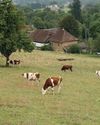
How to Buy a Smallholding in France- Long-time smallholder Lorraine Turnbull looks at the practicalities of moving to rural France
Aspiring smallholders are continually thwarted by the prices of smallholdings and property with land located within the UK. Even the humblest croft in Scotland comes with a substantial price tag and conditions which would make even an adventurous wannabee consider carefully. But all is not lost. For those willing to take the adventure of a lifetime, there is always Europe, and one of the most popular places is France.

Meet the Bournemouth goats and their supporters
These capricious animals are hard workers preserving the natural habitat

Still warm enough to sit outside with a Pizza
Henrietta Balcon uses fresh figs to create an unusual dish at Harvest time
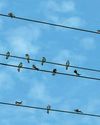
Goodbye to the birds of spring and summer
If you look and listen you might be able to see them preparing to leave says The RSPB
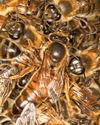
Get ready for the colder weather in the warmth of late summer
Claire Waring advises on doing the best to make sure your colonies survive until next spring

Preparing the Veg Patch for Winter
Lee Senior says, a well-run plot can excitingly continue to produce good quality, tasty, fresh food for much of winter
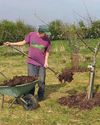
Time to prepare to plant your orchard
Wade Muggleton, smallholder and author of The Orchard Book, shares his practical experience so you can create your own fruit collection
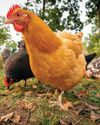
Choosing feed for the autumn
As autumn approaches, Joanna Palmer, nutritionist at the Smallholder Range, offers advice on choosing the right feed to support your adult birds through their annual moult and ensure your young birds grow and finish well at this time of the year.
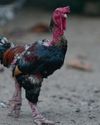
Vet advice from an experienced poultry vet
Reflecting on how much the humble hen has helped people world wide plus advice on stopping the scourge of red mite
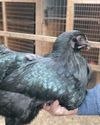
Give your hens some support
Paul Donovan looks at the right and wrong ways of handling birds